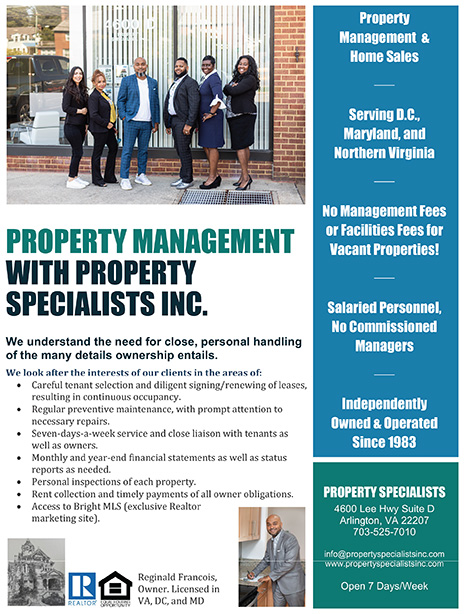The Office of Diversity and Inclusion Turns One: An Interview with Ambassador Gina Abercrombie-Winstanley

Ambassador Gina Abercrombie-Winstanley at the podium, 2022.
U.S. Department of State
Editor’s Note: This interview is adapted from the transcript of AFSA’s April 5 “Inside Diplomacy: Creating a More Diverse and Inclusive Foreign Service,” featuring a dialogue between AFSA President Eric Rubin and Chief Diversity and Inclusion Officer Gina Abercrombie-Winstanley. The conversation, which took place on Zoom with an audience of several hundred, was followed by questions from the attendees presented by AFSA Outreach and Strategic Communications Manager Nadja Ruzica; Ambassadors Rubin and Abercrombie-Winstanley then wrap up the discussion. To view the entire event, go to AFSA’s YouTube page, AFSAtube.
AFSA President Eric Rubin: April 12 marks the first anniversary of Ambassador Gina Abercrombie-Winstanley’s tenure as the State Department’s first Chief Diversity and Inclusion Officer. She was charged by Secretary of State Antony Blinken with changing the culture, the norms, the behaviors and the biases of our State Department and the Foreign Service. It’s a tall task. Any bureaucracy is resistant to change.
Ambassador Abercrombie-Winstanley’s 30-year career includes such highlights as being the longest-serving ambassador to the Republic of Malta, advising the commander of U.S. cyber forces on our foreign policy priorities, and expanding our counterterrorism partners and programs as deputy coordinator of counterterrorism. She is one of our most distinguished leaders, and we are very lucky to have her in this position. Today’s event is an opportunity to discuss the work that’s been done so far, what’s underway and the challenges that still lie ahead.
When Secretary Blinken appointed you as the first CDIO, he charged you with a mandate to improve diversity and inclusion in our workforce, in our work and in the product that we deliver for the American people. What does that mean in practical terms? And how did you decide where to start?
Chief Diversity and Inclusion Officer Gina Abercrombie-Winstanley: Thank you for setting up this opportunity to speak with so many of our colleagues about this new turn that we are taking as an organization, as an institution, and this new bold walk into a better future for everyone.
I came to this position knowing that I had a strong mandate. The Secretary was clear that he would judge his success by whether he left behind an organization that reflects the greatness of the United States of America as this will help us better navigate, address and meet the challenges of the 21st century. Then, of course, the president came out with his executive order that called on every federal agency to set up a process for improving diversity, equity, inclusion and accessibility.
I had a strong mandate within the organization itself from our leadership, from the president and from the workforce itself. I cannot tell you how many times people have reached out to me to say what high hopes they have for what this office will help our organization do. It does take a lot of effort to move this great machinery that is the Department of State, but I believe we have the pieces in place for that.
To the second part of your question, we started with three things that I spoke about before I rejoined the department, and that is intentionality, transparency and accountability. Those are the three things I believe are integral to not only success but lasting change.
So, intentionality. Not nibbling around the edges, but actually looking at things through a DEIA [diversity, equity, inclusion and accessibility] lens. Who is at the table? Who is not at the table? If they’re at the table, do they have the expectation that they should be speaking up, that their views, their insights, are going to be welcomed and valued and added to the whole? Again, it’s about how we’re treating our workforce internally, but also how we’re doing our jobs overseas, where our programming is, whether we are reaching every part of the population in our host nation.
As you know, the department and AFSA negotiate new Foreign Service core precepts every three years. The precept dedicated to DEIA that goes into effect starting with the 2022-2023 rating period is part of that intentionality. We’ve had a lot of questions about it. The Foreign Service Journal had a great article by one of my senior advisers [Kim McClure] giving some excellent concrete examples of what is expected of us now as an organization. And that, frankly, boils down to treating each other a lot better than we often do.
We’re a highly competitive group of people, but that inclusion piece is a must. Are we reaching out, not just to the people who look like us, with whom we’re familiar or comfortable, but also making sure that those who are underrepresented feel welcome to speak up, to become truly a part of the whole? Are we making sure that they have a clear and open progression to reach their full potential in the organization? That’s what these precept changes will do, ensure that all of us understand it is all of our responsibility and we are going to be judged on it. That’s what we learned from the private sector: If you value it, you judge it, you reward it.
Key to transparency, of course, is the data. We all know we are a highly skeptical bunch. We don’t believe anything unless we can see numbers to support it. One of the first things I did in setting up the office was set up a DEIA Data Working Group—this in addition to pulling together a crackerjack staff. The people who are working alongside me are extraordinary warriors who love this organization and want to see it at its best.
Led by the deputy CDIO and one of our senior advisers, the DEIA Data Working Group, which includes data experts from key partners within the building—Management/Strategy & Solutions, the Bureau of Global Talent Management and the Office of Civil Rights—meet weekly to gather and analyze the data so that we can see who we are, where we are, and where we need to go. The group has established a Demographic Baseline Report for the department—and it’s already on our website—that shares that information for the first time in a disaggregated fashion with our entire workforce. It will allow us to judge our progress. The Department of State is so serious about this that we have committed ourselves to no longer hiding. We’re putting our numbers out there for all to see.
The final thing is accountability, and that is rewarding people who are doing this important work. With regard to the precepts, you get promoted if you can put in those concrete examples, not just that you support DEIA, but what you are doing to forward it. We are going to reward it; we’re going to be promoting people. I can tell you already it is a prime part of the discussion of the D Committee and the Deputy Chief of Mission and Principal Officer [DCM/PO] Committee.
We will also be holding those accountable who are not doing the work, who are either contributing to or tolerating a toxic work environment. Anyone who carries out or tolerates discriminatory behavior or harassment. People who have the reputation of allowing that will not be in chief of mission, deputy chief mission or principal officer positions. But that requires that we all speak up and be truthful about the experiences that we’re having so that we have the information we need to ensure we’re getting the leaders that our workforce deserves.
If you also recognize that those who get those jobs come from a pretty narrow band of folks who’ve had the “right” jobs, who’ve done the seventh-floor jobs, worked in this particular mission, or know that person in that position, and you don’t have the same access to it, you understand that greater transparency is going to help you.
AFSA: Two years ago, the Government Accountability Office did a study, and it reported uneven progress in improving diversity from 2002 to 2018. And recent studies show that the senior ranks of our Service are less diverse now than they were 20 years ago, which I can testify to from personal experience. Why do you think the efforts have not been successful? And how are you using the lessons learned to work on the new strategic plan and the new approach?
CDIO: The lack of diversity, most acutely in our senior ranks, is something that we should all be aware of. The numbers from the GAO report were stark. You’ll see a bit more granularity when you look at our data dashboards. A lot of people push back against diversity and inclusion work, saying that to make a more diverse workforce up and down the ranks means to set aside merit-based promotions. That has been the major force behind the pushback, that we won’t be judging people on how good they are for the position if we are looking to have a diverse workforce. And that is absolutely not true.
You don’t get to 87 percent of one group that is not 87 percent of the population and feel confident that all of those selections were made on the basis of merit. We intend to improve merit-based hiring by ensuring that everyone has an opportunity to reach their highest potential, not because they look a certain way, or are part of a certain gender or sexual orientation. Not because they’ve had the “right” assignments, or they know the “right” people or have the right people advocating for them. All of those things have kept senior positions in a fairly closed shop.
And let’s be frank, we have to call spades spades. Those who have the vast majority of senior positions are primarily European American men. That does not come about through merit, not all of them. We are improving merit by putting that focus on diversity and inclusion. That’s what ensures that the best, regardless of background, have a real shot at success. We’re also monitoring progress and success from the employee’s perspective, as well.
Now we are doing an overall survey [the “climate” survey] that’s going to start by checking in with the Civil Service and Foreign Service, on where we are, what people think about what we’re doing. The changes that we’ve already begun to make, are they working? We’re going to have a granular view of this agency.
We’ve also ensured via the new core precept that it is now everyone’s job to make this work. It isn’t just my job, it’s not just the Secretary’s job, or those in this office. And it’s in the strategic plan that has been finished and is now awaiting approval from OPM. We put a preliminary version of it up on our website in November, so people have a general idea of the direction we’re heading. We put it out to receive feedback and observations and recommendations based on the lived experience of Foreign Service generalists and specialists and Civil Service officers and contractors in this building (of which we have thousands), eligible family members and locally employed staff.
As a result, we had over 700 contributions to our strategic plan! We set up working groups to distill and discuss and figure out what was workable, what timeline, what resources would be necessary to make some of the amazing suggestions real in this organization. We did it in a way that I believe will truly reflect the beliefs and will and desires of our workforce in its entirety, but in a fashion that brings real-world data and resources and time commitments to making sure that it comes about. I think that’s the major difference.
AFSA: Could we talk a little bit more about the DEIA strategic plan that’s with the Office of Personnel Management? Assuming OPM approval, what do you hope to be rolling out when it’s approved?
CDIO: I don’t expect OPM to make any changes, because we very closely followed the requirements they laid out. The plan captures a lot of the work that was already being done in pockets of the building.
We are working from what has gone before us. And from many of our partners around the building, including the employee organizations [formerly employee affinity groups], that gave a lot of support. There was a lot of support from individuals because they had the opportunity to contribute. We have a lot more input from the workforce than we had before. We are prioritizing the need for data-driven, evidence-based approaches to making changes. I believe that people will see the work. It will make sense to them.
And then we’re going to have an implementing document. In fact, our organization is ahead of many. We needed this implementing document, because we wanted to drill down with when this is going to happen, how this is going to happen, how it’s going to be measured. A lot more information is going to be coming out and shared with the workforce, even after the strategic plan comes out. Look for the implementation document that will follow it.
AFSA: Great. And in talking about the importance of data, obviously progress toward diversity can be quantified to a certain degree, but inclusion and the workplace atmosphere are much harder to quantify. How do you hope to assess that piece of the puzzle?
CDIO: You’re absolutely right about that. And inclusion, frankly, is the most important part. It isn’t that you just let people in the room. If they still don’t feel like their views are valued and welcomed, they might not speak up, and their presence won’t make a difference at all. If they feel that they cannot add a contrary opinion to the discussion, or one that’s a little bit outside the normative thinking, then the value of having them in the room and at the table is going to be lost.
The inclusion piece really demands that we all speak up. As we look at the challenges that we’re facing around the world, it’s clear we need a wider variety of recommendations on how to address them, how to resolve them. That inclusion piece means everyone. This is something that we stress when I’m doing town halls with bureaus or embassies, or traveling and meeting with our colleagues to talk about what these changes mean. So that nobody needs to fear that their opinion isn’t going to be valued or sought.
On the survey that I mentioned earlier, the climate survey, we worked with Ernst & Young, who are specialists in this field. When I first came to the office, there were any number of organizations that were eager to help us spend our money on improving DEIA at the Department of State. To each and every one of them, as they gave their PowerPoint display about what they could do or what they thought we should be doing, my question always was, what does your organization look like? What have you done within your own organization? Why should I give you my money if your organization looks like I think it looks? And then I’d pull out a photo or video of their leadership to emphasize the point.
And we have worked very hard on the questioning across bureaus, particularly with the Bureau of Global Talent Management, which has a lot of experience doing surveys. We piloted the survey with the Bureau of International Organization Affairs, and have taken that feedback, and are reworking some of the questions to ensure that we get granular feedback from our workforce that will help us successfully attack this inclusion issue.
One of the best pieces of advice that we got as we started putting together this survey was: Don’t ask any questions that you cannot take action on. This office is about action. I’m urging everyone within the department to take the survey when it comes out in the next couple of weeks. And recognize that your answers to these questions are leading to specific steps in response. This is a very action-oriented survey, and it gets after the inclusion piece.
We are prioritizing the need for data-driven, evidence-based approaches to making changes.
AFSA: Can you talk a little bit about how you’ve been challenging our bureaucracy? We’ve worked with you on core precepts, but how else are you challenging our bureaucracy?
CDIO: There’s a lot of work to do. Many of our workforce understand just how opaque this organization is. I know where all the rocks are to pull up and poke at underneath. And so, too, do my staff.
We ask questions. One of the things that we are going to be spending part of our budget on is working with other bureaus who have ownership over parts of the FAM [Foreign Affairs Manual] to reflect the changes that have already happened and are going to happen—to put it in black and white. So everybody knows exactly what’s happening where and why. One of the things that has changed in the last year is publicizing who’s on the D Committee, the DCM and Principal Officer Committee, and the Executive Resources Board, which covers the Civil Service. Many of us didn’t know.
When you’re looking for one of those high-powered, high-level positions, how do you go about getting it? There are a number of things that are quite opaque, or have been, that we are trying to shine a bright light on. And this goes again to the inclusion piece.
This is how I am able to increasingly melt down the resistance I find from those for whom the current system has worked, or those who think the current system is going to work for them. If you see that over 60 percent of the senior positions are going to white men, well, you might not want to change that, because that’s pretty good odds for you [as a white man] in this organization. But if you also recognize that those who get those jobs come from a pretty narrow band of folks who’ve had the “right” jobs, who’ve done the seventh-floor jobs, worked in this particular mission, or know that person in that position, and you don’t have the same access to it, you understand that greater transparency is going to help you regardless of your background. And this is strong. This is important for all of us.
Who’s on those committees? Who do you need to talk to? How does the D Committee work? How does the vetting work? All of these things go to transparency.
As we make those changes, shining that bright light, we are leveling the playing field for everyone. The vast majority of us can understand and recognize and support the inclusion that those changes will bring about. Everything we do is focused on improving this organization for everyone in it. Not just brown people, not just people with disabilities, or gay people, or women. This work is for all of us.
AFSA: You’ve laid out a really great sense of what the work is, what the challenges are. What are you looking forward to being able to say you accomplished?
CDIO: Before I took the job, colleagues in the private sector told me the work is heavy and hard. But even after I leave, and this particular cohort of brilliant officers doing the work in the office leaves, the work will continue. I think my definition of success is that the office shuts down. That it is so well embedded in our culture that you don’t need a special office to look at these things. But we are needed now to put the foundation in place.
I think we will continue to attract top-notch officers to this office as we have so far, for a couple of reasons. Most importantly, this is one of the places in the building where you are going to be able to see the changes you’re working for. We’re seeing things change almost on a daily basis from this office. We have so much in the pipeline. Again, the strategic plan is laid out, the blueprint, and then the work has to be built out, driven forward. It’s going to make us better diplomats to do this work right.
We’ll continue to get great people to carry out this work; and at some point, it’s going to sunset. We don’t want to be talking about this 10 years from now or, God forbid, 20 or 30 years from now. We’ve been talking about this for far too long.
The challenges are many because nobody likes change. I did this whole course on being a change agent. It was a reminder to me that everyone who is a drag on the change that we need to make isn’t in that position because of animus or ill will. Sometimes it’s just that change is more work, and people don’t want more work, or they understand the system as it is. We have to be incredibly agile and informed and knowledgeable, and willing to look into all of the nooks and crannies to understand the law and make sure that we can use it to get where we want to go as an organization. We have to make sure that regulation and law is followed.
Our favorite line is recruit for diversity and hire for merit. Make absolutely sure that our recruiting efforts bring a diverse cohort into the department. But when you’re putting together panels of officers to consider for positions, that list better be diverse. If you’ve done your job right, there’s no compromise on merit. You have done your recruitment in a way that brings you great officers from a wide variety of backgrounds. Therefore, you can keep that mix going all the way to the top. That’s what we expect.
As we make those changes, shining that bright light, we are leveling the playing field for everyone.
AFSA Outreach and Strategic Communications Manager Nadja Ruzica: Thank you both for an excellent discussion. We’ve received a lot of questions, and we will try to get through as many as we can. … Will the recruitment and testing processes, as well as medical security and suitability assessments, be reviewed to ensure there is no implicit bias there?
CDIO: The short answer is yes. Things are happening even as we speak. But the Board of Examiners and that part of GTM have the lead. I will not steal anybody’s thunder on making any announcements. I’d say watch this space, and watch it with hope. When I came into the Foreign Service, I remember I had 52 people in my class. We went out for a drink afterward, and the guys stood around at the bar speculating on which women came through another way, through the Mustang Program or through another program, and who didn’t pass the written test.
The reality is that the written test has zero correlation to being a successful diplomat. Zero. Passing doesn’t prove that you’re going to be a good diplomat. It doesn’t prove that you’re going to be a terrible diplomat. It tests a certain body of knowledge at that time.
As you all know, we have the extraordinary Foreign Service Institute. Anything that we need, it can be taught, except for emotional intelligence, except for respect for the other. One of the things that our full process does not do—and I hope we can figure that out soon, because the oral exam actually does have a correlation to success as a diplomat—is test for racists, or sexists, or homophobes, or ableists. Those are the things that we need to be screening for. There will be changes coming, watch this space.
AFSA: There’s a perception that FSOs who are people of color have been leaving the Foreign Service over the last few years in record numbers. This isn’t necessarily reflected in the statistics that we’re seeing. Do you have a sense of what is accurate?
CDIO: I’m certainly aware of the perception. We’ll get the data; we’re going to be putting it all out there. Watch the ODI SharePoint site, our website and our dashboard. Frankly, because there are so few of us, when you lose one, you’re losing a huge percentage. Each one, if it is someone who is a valuable, productive member of our cohort, is a heartbreaking loss. We don’t want to lose people that we shouldn’t be losing, but I don’t have hard numbers yet.
AFSA: Another questioner says they’ve heard many stories of people not filing grievances because the burden of proving discrimination is so hard. And as a result, there is a toxic work environment that’s not properly dealt with. How can this be changed, so that people are finally held to account?
CDIO: We are discussing a variety of options and ways, keeping in mind privacy law. There are some things that might appear logical to do, that we simply cannot do for privacy reasons. I urge every colleague, if you are having challenges at post, document them. Make a memo to the file. If you have witnesses, then send an email. Make sure that you’ve got a track record that will help you when you decide to file a case. Make sure you understand the difference between harassment and discrimination. I might suggest to people that you go to both parts of OCR [the Office of Civil Rights]—harassment, as well as discrimination—because the investigation part of the harassment is faster.
There are a variety of things out there that can help you hold accountable those of us who need to be held accountable. Now we have a system that seems to fail across the board. Both parties feel like they are being ill-used, that the treatment is unfair, that bad things are happening. If everybody feels like it’s not working, we’ve got to figure out what else we can do. But there are privacy restrictions.
We work with GTM, its Office of Employee Relations [on conduct, suitability and discipline issues] and the Office of Civil Rights and employment lawyers, as well as our office, because we want more transparency. It is our belief that if people talk about bad things that are happening, that people will behave better. We’re trying to bring some more transparency here that follows the law and regulations, because it’s needed.
My definition of success is that the office shuts down.
AFSA: Thank you. Disabilities were briefly mentioned, and the person asking the question would like more detail on the efforts to ensure that people with disabilities are included in the Foreign Service.
CDIO: Absolutely. We’re working to ensure that our colleagues with disabilities are not only welcomed at posts or in offices, but that the right things are in place so that they can fully contribute. Let me be honest. All of these things, microaggressions or worrying about whether you’re going to have somebody with a disability, whether you’re going to be able to support them properly, these concerns, these issues are with all of us.
You can go to our SharePoint site to get information. Things are in place to help us ensure that our colleagues are able to do their jobs like everyone else. We need to hear from you. We’re working with our partners in the Office of Accountability and Accommodations. They do amazing work and have been full partners with us and GTM in other places, as well. But we’ve got more to do.
AFSA: Are there any things that can be quickly implemented to advance demographic changes in the Foreign Service mid- and senior-level ranks that are not tied to recruitment and entry-level positions?
CDIO: Well, we’ve had mid-level programs before with varying degrees of success. There’s interest on the Hill for another one. GTM has the lead on that. We have certainly discussed it, but I have not been in any discussions recently on that. It’s a challenge. Legislation was being advanced when I first came to the job a year ago that talked about a mid-level program, and one of the challenges is distinguishing between a mid-level program and entry-level FSOs.
Let’s be honest. With the typical mid-level program, somebody might have five to seven years of experience and/or an advanced degree and/or something like that. But we come in with that as entry-level officers. So how would you make a distinction between mid-level versus entry-level when many entry-level officers come in with so much experience?
I certainly believe such a program needs to be examined, because I don’t believe we can wait for numbers to work their way up. When I came in over 30 years ago, that’s what we said would happen: “Oh, we’re increasing the numbers at the bottom. They’ll work their way up.”
But we need to find out what’s happening to people. My office is supporting GTM with our survey to find out what makes people leave, women as well as underrepresented groups. We want to make sure that we don’t lose anyone that we don’t have to lose.
How do we make sure that they believe they can make it to the senior ranks? I remember hearing a senior-level officer say, because somebody briefed him on this, that he understood that minorities and women don’t raise their hands for the senior positions. I was silently groaning and ready to pull my hair out, because I was thinking, “No, we want those positions!” But I have been in touch with women, in particular, who say they’re not sure they’re going to go for a DCM job because they don’t think they have a chance. And for sure you don’t have a chance if you don’t put your hand up. My mom always said, “Make them tell you no. Don’t pull yourself out if you want it.”
Knock on those doors. Make them tell you no.
Our favorite line is recruit for diversity and hire for merit.
Amb. Rubin: Thank you for this terrific discussion. I hope we can continue this dialogue on a set of issues that we are committed to. I want to share that I heard from one member who said, “I know this is important, but in the middle of this crisis with Ukraine and Russia, should we really be stepping back and talking about this?” I replied, “If not now, when?” I mean, we’re always in a crisis.
CDIO Abercrombie-Winstanley: We can walk and chew gum.
Rubin: We can walk and chew gum, and we need to strengthen our Foreign Service, strengthen our diplomatic capabilities for the American people. And we’ve got to work on that all the time. I’m really glad we have had the opportunity to do that today.
Abercrombie-Winstanley: Thank you for this opportunity to shed some light, shine some light. We appreciate our partnership with you, and we expect you, colleagues, to hold us to account. Okay? Ask us questions: “What have you done? Where is this?” We need you to press us because that’s how we press forward. Again, it’s for everybody, and I’m privileged to be a part of this with my incredible, incredible team. Thank you.
Read More...
- “Diversity and Inclusion in the U.S. Foreign Service—Recommendations for Action,” by Association of Black American Ambassadors, The Foreign Service Journal, January-February 2021
- “Diversity at State: A Dream Deferred and a Collective Responsibility,” by Ana Escrogima, Lia Miller and Christina Tilghman, The Foreign Service Journal, September 2020
- “The Making of a Real American Diplomat,” by Julie Chung, The Foreign Service Journal, September 2020








